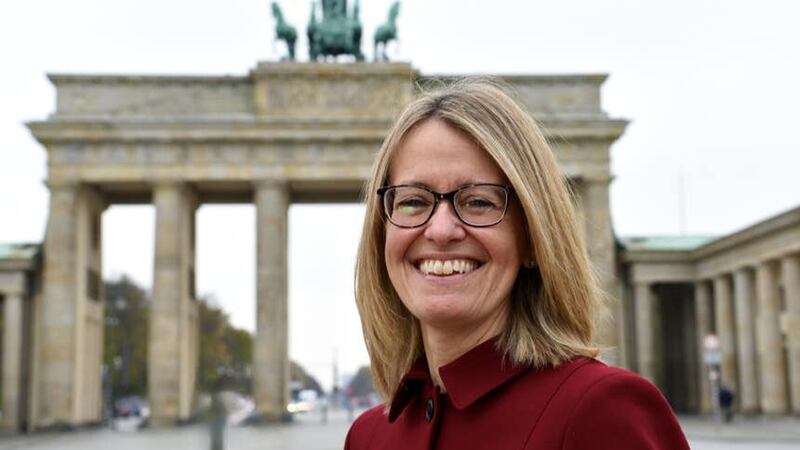A host of Northern Ireland-born diplomats serving across the world have described being inspired by the Belfast/Good Friday Agreement.
On the 25th anniversary of the accord, they have spoken about its continuing impact on their work serving in countries from Afghanistan to North Korea, Hong Kong and Turkey.
Josh Norton, 27, from Belfast, said the agreement was his inspiration for joining the Foreign, Commonwealth & Development Office (FCDO).
He is now a policy adviser on the FCDO’s Ukraine desk and was previously deployed to Kabul following the collapse of the Afghanistan government.
“I’ve worked on some of the most devastating and sustained conflicts that the world continues to grapple with,” he said.
“The Belfast/Good Friday Agreement demonstrates the prize that is on offer and shows when we pursue dialogue over conflict, we can end the violence.”
Mr Norton was born in 1996, just two years before the agreement was signed.
“It gave me a childhood of peace and one in which I could focus on my education and where it was perfectly normal for me to be able to go outside and play football with my friends from all different sides of the community without the fear of violence that the generations before me suffered so deeply,” he said.
“It is always at the forefront of my mind as I’ve worked on other conflicts around the world. The Belfast/Good Friday Agreement shows what can be achieved when we pull together in dialogue.”
Colin Crooks, 54, from Dungannon, serves as the UK’s ambassador to South Korea, and previously worked as the ambassador to North Korea.
Many of his early memories of childhood were of violence and conflict, and said the spirit of compromise in Northern Ireland in the 1990s has inspired him throughout his career.
“The idea that leaders can sit down together, even where very serious historical and personal grievances exist, is something that I think other countries can also learn from, not least here on the Korean peninsula, where we also hope to see peace and prosperity take hold one day,” he said.
In Berlin, Jill Gallard, 54, from Omagh, recently hosted the King on his first foreign visit since being crowned, in her role as the UK’s ambassador to Germany.
She said she had been working as a young diplomat in Madrid when the agreement was signed, and burst into tears of relief that the Troubles were coming to an end.
“The Belfast/Good Friday Agreement is important to me because it marked an end to the weekly, often daily, loss of life in the Troubles, which was the backdrop of my childhood and teenage years,” she said.
“I’m convinced that part of the reason I became a diplomat was growing up in Northern Ireland. I remember being baffled about why the two sides of the community couldn’t talk to each other and resolve their differences in a peaceful way, with compromise on both sides.
“Dialogue makes such a difference.”
Geraldine McCafferty, 50, from Co Armagh, is deputy head of mission at the British embassy in Beijing, China.
She said growing up in Northern Ireland during the Troubles gave her a desire to see more dialogue and less conflict.
“For me, the Good Friday Agreement is an example to us all of what can be achieved through dialogue, with hard work, trust and courage,” she said.
“It is a beacon of hope that the impossible can be achieved when people work together, quietly and resolutely and often invisibly behind the scenes.
“It delivered more than a peace process. It brought decision-making closer to the people and created a shared confidence in our future.”
Meanwhile, Brian Davidson, the UK’s consul general to Hong Kong, said he talks about the agreement a lot in his job.
“Not only did it bring peace and stability to the shores of Northern Ireland, but it literally helped unlock that creativity, the innovation, and exposed to the rest of the world what we see as the real Northern Ireland,” said the 58-year-old from Holywood.
“For me, the talking about the Good Friday Agreement and the process that led up to it is indeed something I do quite a lot in my job in the various countries I’ve served – not least in that whole process of dialogue is something that is fundamental to diplomacy.
“I thought very much about the need to build bridges between communities – that idea that you engage with people with whom you may have differing views, to build commonality, to build understanding, to acknowledge different points of view, to accept that, and to respect that.
“That is part of a process I think in all communities to build better understanding and bring people together.”






